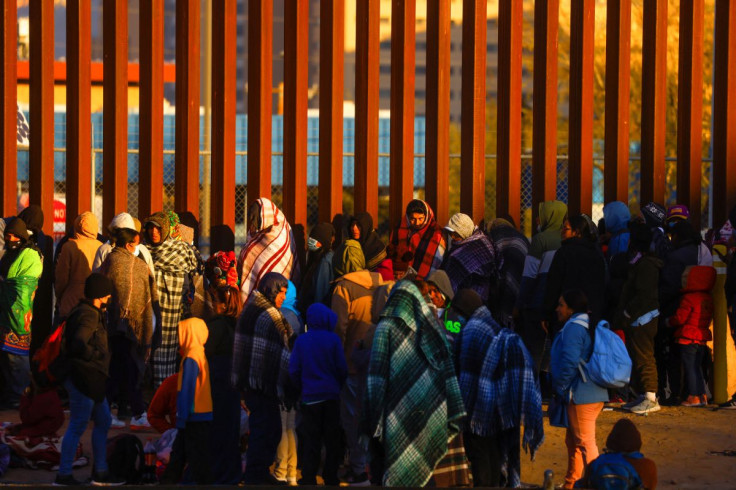
Authorities are concerned about the mayhem that might occur when Title 42 expires next month since up to 40,000 migrants have gathered on the Mexican side of the border ready to enter the U.S.
Hundreds of migrants a day are once more crossing into El Paso and handing themselves to border agents because migrants in Juarez, Mexico, are sick of waiting or falling for internet scams that lead them to believe they will be granted asylum in the U.S.
"We have intel that there's between 10,000 and 40,000 people waiting to cross over," a police official who did not want to be named told The Post of the swelling number of migrants amassed directly across the border.
The U.S. Border Patrol told The Post that on Wednesday, Apr. 12, afternoon, a sizable group of over 750 migrants turned themselves in.
On Thursday, Apr. 13, several more migrants turned themselves over to border patrol, making the tasks of processing and ejecting them an enormous job for the authority, New York Post reported.
Migrant groups as large as 1,000 people have been turning themselves over to officials in Texas' sixth largest city since late March, fueled by fake information spread on social media by drug cartels, who would prefer them to pay to be smuggled over the border.
"The cartels don't make any money by migrants sitting around waiting for the CBP One appointment," another source told The Post, explaining that the CBP One app is the legal way for migrants to claim asylum.
U.S. border officials have also launched a social media campaign to set the record straight.
When hundreds of people cross over onto American soil at a time, the process of processing and then expelling them takes a few days, during which time they have to be housed and fed.
Due to the overwhelming quantity, Customs and Border Protection has been transporting migrants by plane from El Paso to other border towns like Laredo and San Diego so that they can be processed and ejected.
This enables more migrants to be sent back to Mexico and prevents El Paso's Border Patrol facilities from becoming overcrowded.
According to border sources who spoke to The Post, migrants who cannot be sent back to Mexico are being sent to their home country in order to prevent them from trying to enter the U.S. again.
Frustration is also growing among migrants who came to the border expecting to be allowed into the country, only to find they would not be under Title 42.
Many have waited months in Mexico in the hopes that something will change that will allow them to legitimately request asylum. They now decide to take a chance on being one of the select few who are permitted to remain in America.
Until May 11, when Title 42 is anticipated to cease, Border Patrol authorities anticipate additional sizable groups to "episodically" arrive at the border barrier in El Paso.
The pandemic-area policy put in place by former President Donald Trump, allows the Border Patrol to quickly expel millions of migrants from certain countries to Mexico without allowing them to seek asylum in America.
Currently, Venezuelans, Haitians, Cubans, Nicaraguans, Guatemalans, Salvadorans, Hondurans, and Mexicans are subject to Title 42.
A new immigration law that would mandate asylum seekers to ask for protection in every nation they pass through before arriving in the U.S. has been suggested by the Biden administration.
The regulation is anticipated to go into force in May and endure for two years. Frenetic migrants could storm any of the city's numerous international crossings due to the complexity and constantly changing legislation, as has happened twice since March.
U.S. authorities have been forced to shut down the Paso Del Norte Bridge, most recently on Monday, Apr. 10.
Customs and Border Protection used concrete barriers, razor wire, and a special border SWAT team to keep migrants from pouring over to the U.S. side.
Since December, when El Paso proclaimed a state of emergency due to the border issue, the city has received reinforcements from hundreds of state troopers and Texas National Guard personnel.
As border security has been tightened, some desperate migrants have been turning to criminal smugglers to get across the border by traversing hazardous sewage tunnels, traveling through border mountains, or scaling the 9-foot border barrier.
Those who manage to escape face even more danger at the hands of cartels, who frequently confine migrants to cramped cars, shelter them in "deplorable conditions" in stash homes, or engage them in sometimes fatal car chases with the police.
© 2025 Latin Times. All rights reserved. Do not reproduce without permission.




